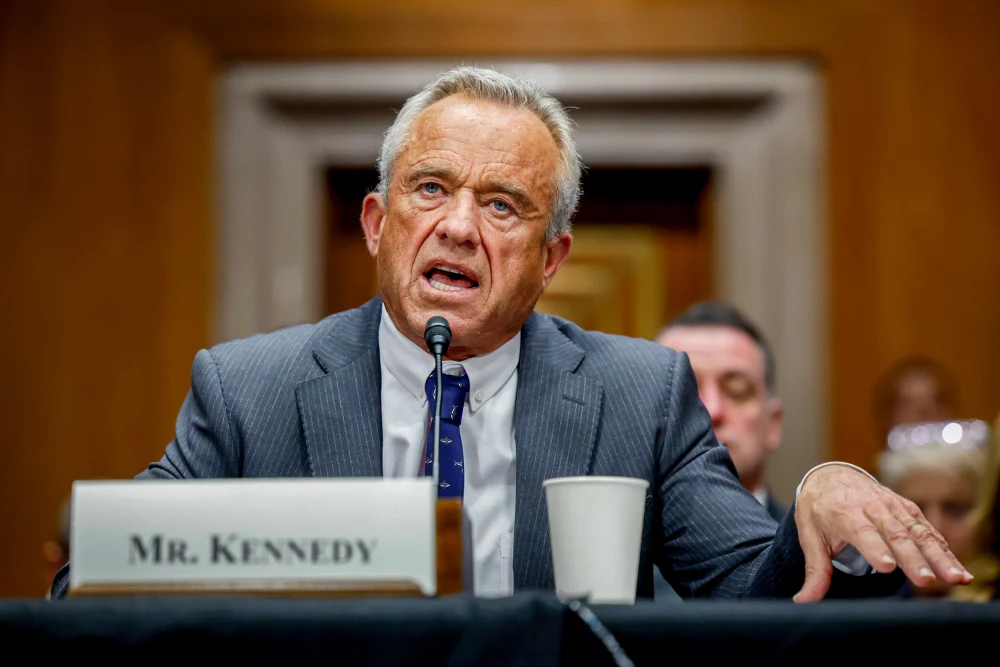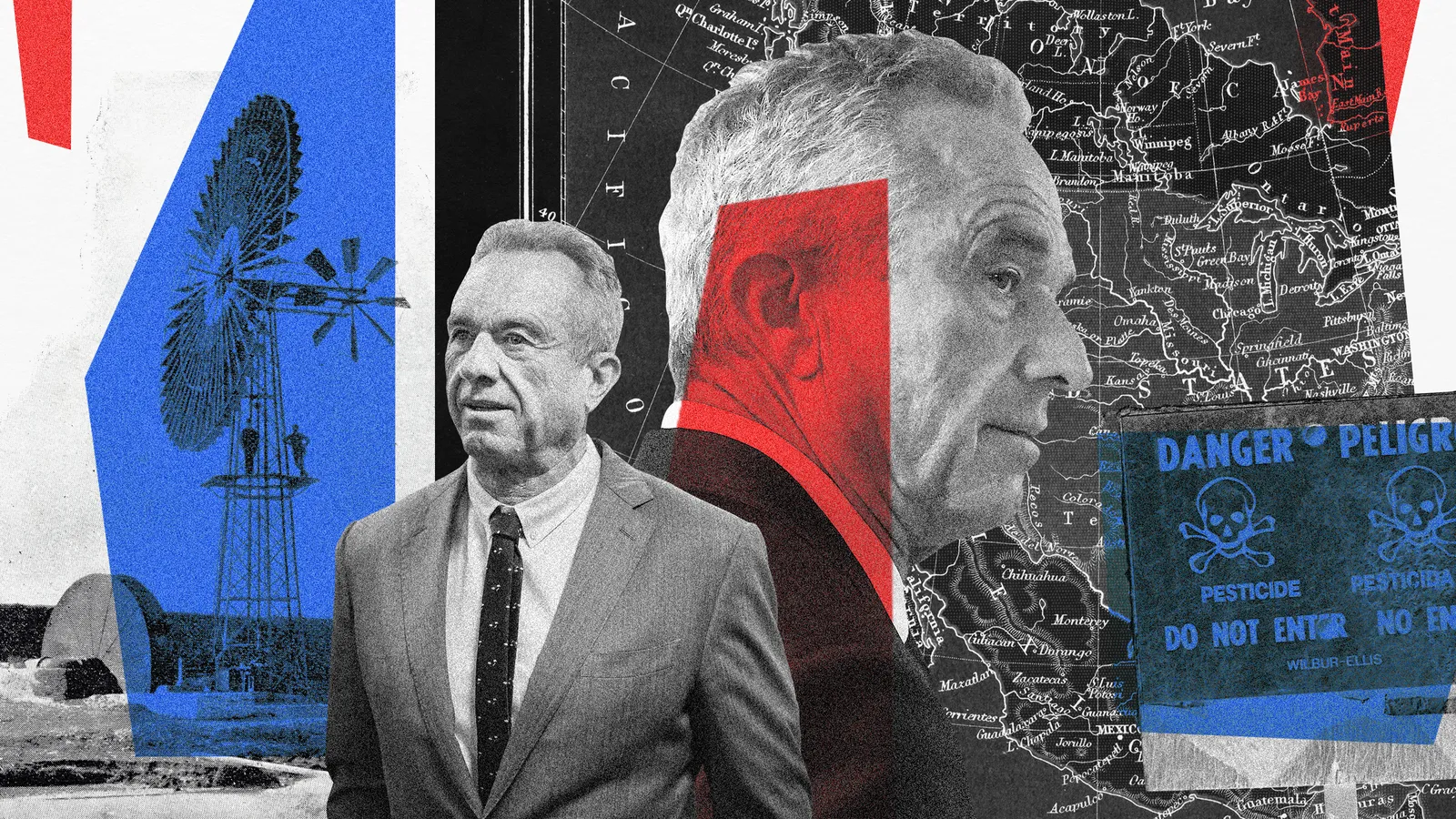
Robert F. Kennedy Jr. testifies during his Senate health committee confirmation hearing on Thursday. Kevin Dietsch / Getty Images
Robert F. Kennedy Jr.’s recent nomination as Secretary of Health and Human Services (HHS) under Donald Trump’s administration has ignited a firestorm of debate, shedding light on deep divisions within American farming, public health, and political ideology. Kennedy’s confirmation hearing was nothing short of a spectacle, as his controversial views underscored a striking political realignment and sparked questions about the nation’s trajectory concerning organic agriculture and environmental reform.
Known for his unwavering support for organic farming and natural health solutions, Kennedy champions a vision that prioritizes soil and human health over corporate interests. “We need to go back to traditional methods that put soil health and human health at the forefront,” Kennedy stated in a recent video promoting his “Make America Healthy Again” (MAHA) platform. This vision calls for pesticide-free, organic farming practices that aim to boost sustainability and public health. While these ideals resonate with health-conscious Americans, they also represent a sharp break from industrial farming practices, placing Kennedy in direct conflict with traditionalists on both sides of the aisle.
His platform, however, extends beyond agriculture. As the head of HHS, Kennedy would oversee key agencies like the FDA and NIH, ushering in the possibility of reshaping public health policies. Yet, his history of controversial stances—most notably his claims linking vaccines to autism and HIV—has made him a polarizing figure. While Kennedy clarified during his hearing, “I am not anti-vaccine,” critics remain wary, pointing to his long-standing criticisms of vaccines, GMOs, and conventional farming techniques. Many fear his potential to align regulatory agencies with activist-driven reforms over evidence-based science.
The nomination represents a pivotal moment for President Trump, who, despite differences, has opted to diversify his cabinet with an ideologically unique figure like Kennedy. To balance Kennedy’s organic-first ethos, Trump also selected Brooke Rollins for Secretary of Agriculture. Rollins, along with her Chief of Staff Kailee Tkacz Buller, epitomizes the interests of conventional agriculture backed by genetically modified crops and large-scale monoculture systems. Their presence signals a commitment to traditional farming practices, creating a potential counterweight to Kennedy within the administration.
This dynamic gets even more intriguing with the emergence of vocal supporters of organic farming like the environmental activist Vandana Shiva, whose advocacy for organic agriculture globally has polarized critics and supporters alike. Shiva’s influence in Sri Lanka’s failed attempt to transition entirely to organic farming—an initiative blamed for sharp declines in crop yields and economic turmoil—illustrates the high stakes of such a dramatic swing. Detractors argue that large-scale shifts to organic farming could lead to increased land use, higher emissions, and diminished food supply. Recent critiques from organizations like The Breakthrough Institute warn that Kennedy’s approach might sacrifice economic efficiency for ideological purity.
Nonetheless, Kennedy’s nomination has stirred surprising political realignments. Organic farming, historically championed by progressive circles, is finding newfound appeal among a segment of socially conservative Americans—especially Trump-supporting groups like the self-styled “MAHA moms.” This group, advocating health-conscious and often vaccine-skeptical lifestyles, has embraced Kennedy’s rhetoric. However, this growing alliance between progressives and conservative populists in the organic farming movement is creating tensions with conventional farmers loyal to industrial methods and corporate agribusiness.
Kennedy’s crusade also illuminates a glaring discrepancy in U.S. farming: organic crops account for only 1% of U.S. farmland today. Advocates argue that expanding this share could reduce reliance on imported organic goods, stimulate rural economies, and create new jobs. However, skeptics emphasize the economic and logistical hurdles of scaling organic practices, pointing to increased production costs, labor demands, and potential lower yields. These challenges underscore the broader tension between Kennedy’s environmental promises and the economic realities facing modern agriculture.
Though his vision for reform has injected energy into the public conversation, it faces a fraught path forward. Kennedy’s polarizing views on vaccines, GMOs, and corporate control have left even some potential allies questioning whether he can effectively lead the nation’s public health institutions. Navigating these challenges will require navigating deep political and ideological divides while balancing competing farming paradigms.
Robert F. Kennedy Jr.’s nomination has undoubtedly amplified debates about how Americans farm, eat and regulate health. Whether his leadership will usher in transformative change or exacerbate policy divisions remains to be seen. One thing is certain: the nation’s agricultural and health landscape is at an inflection point, with Kennedy standing at the center of what could be a defining political and environmental shift.



















































